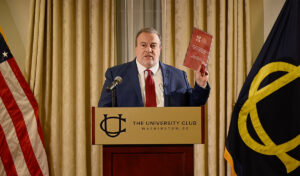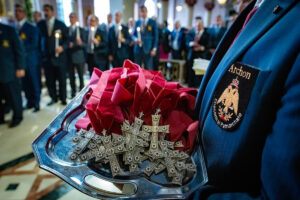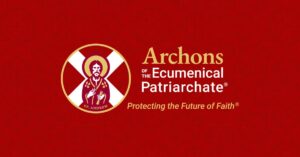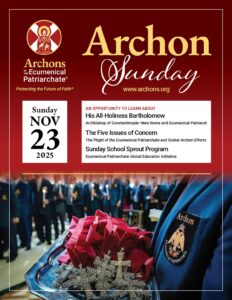Today’s Zaman newspaper recently reported on ‘Bardakoglu: Seminary row an issue of religious freedom’
Today’s Zaman is one of two English-language dailies based in Turkey and reports on domestic and international coverage.
The published article can be read in its entirety below.
Bardakoglu: Seminary row an issue of religious freedom
1/4/2010
Read this article on the website of Today’s Zaman.
The head of Turkey’s Religious Affairs Directorate, Ali Bardakoglu, has joined debates surrounding a Greek Orthodox seminary closed in 1971, saying the issue should be resolved within the framework of religious freedom.
“These issues can easily be discussed and resolved as part of religious freedom,” Bardakoglu said in an interview with the Anatolia news agency published on Saturday.
Established on Oct. 1, 1844, on Heybeli Island — or Halki in Greek — in the Sea of Marmara, the Halki Seminary was the main school of theology of the Eastern Orthodox Church’s Patriarchate in Istanbul until its closure by Turkish authorities in 1971. The Istanbul-based Greek Orthodox Patriarchate has long complained about the status of the seminary, with Patriarch Bartholomew saying it is of vital importance for the survival of the Greek Orthodox clergy.
When reminded of a recent survey that showed that tolerance toward different religions has decreased in Turkey, Bardakoglu said the discriminative and categorizing political discourse spreading throughout the world and disputes surrounding “Islamophobia” and “the caricature crisis” — after a Danish newspaper published caricatures of the Prophet Muhammad in 2005 — have had certain impacts in Turkey.
The centuries-long traditional understanding of tolerance in Turkey might be weaker nowadays because of these reasons, Bardakoglu acknowledged.
“When religious debates are pulled into the political zone, when political actors start discussing issues with an emphasis on their religious aspect and when denunciations and fears concerning a religion and its followers are produced with a generalized approach, people naturally start looking differently at members of different faiths,” Bardakoglu said.
His observations came within a few weeks of remarks by Patriarch Bartholomew in which the patriarch likened his treatment by the government in Turkey to crucifixion, which led to disappointment and anger in Ankara.
In an interview with the Milliyet daily in late December, Bartholomew said he used the word crucifixion figuratively, but that everyone has become overly fixated on this phrase. “It was supposed to mean we have problems,” he said. Repeatedly noting that the Halki Seminary has been closed for 39 years, Bartholomew said most of the metropolitans in Europe are over 70 years old and that they expect new men of religion from the patriarchate.
“The religious minorities in Turkey have equal rights as equal citizens,” Bardakoglu said. “We should by all means be respectful to their religious freedom; if there is any deficiency in this area, we should fix it. I don’t quite think that any religious group has difficulty in regards to education and appointments and clerics and in regards to performing religious services and prayers; however, if there is [any difficulty], it should be removed. If there is a Christian society somewhere, and they want to build a church, then we should help them,” Bardakoglu added.
‘St. Paul’s church in Tarsus should be opened’
Touching upon another controversial issue surrounding religious freedom in Turkey, Bardakoglu said his institution has already told the relevant authorities that a former Roman Catholic church in Tarsus, which was confiscated by the state in 1943 and is now a museum, should be turned back into a house of worship.
Rather than remaining a museum, St. Paul’s Church should be opened as a church, Bardakoglu said. “Our recognition of religious freedom for members of different faiths — which has been our biggest virtue for centuries — actually results in protecting our self-confidence concerning our own identity and faith.”






